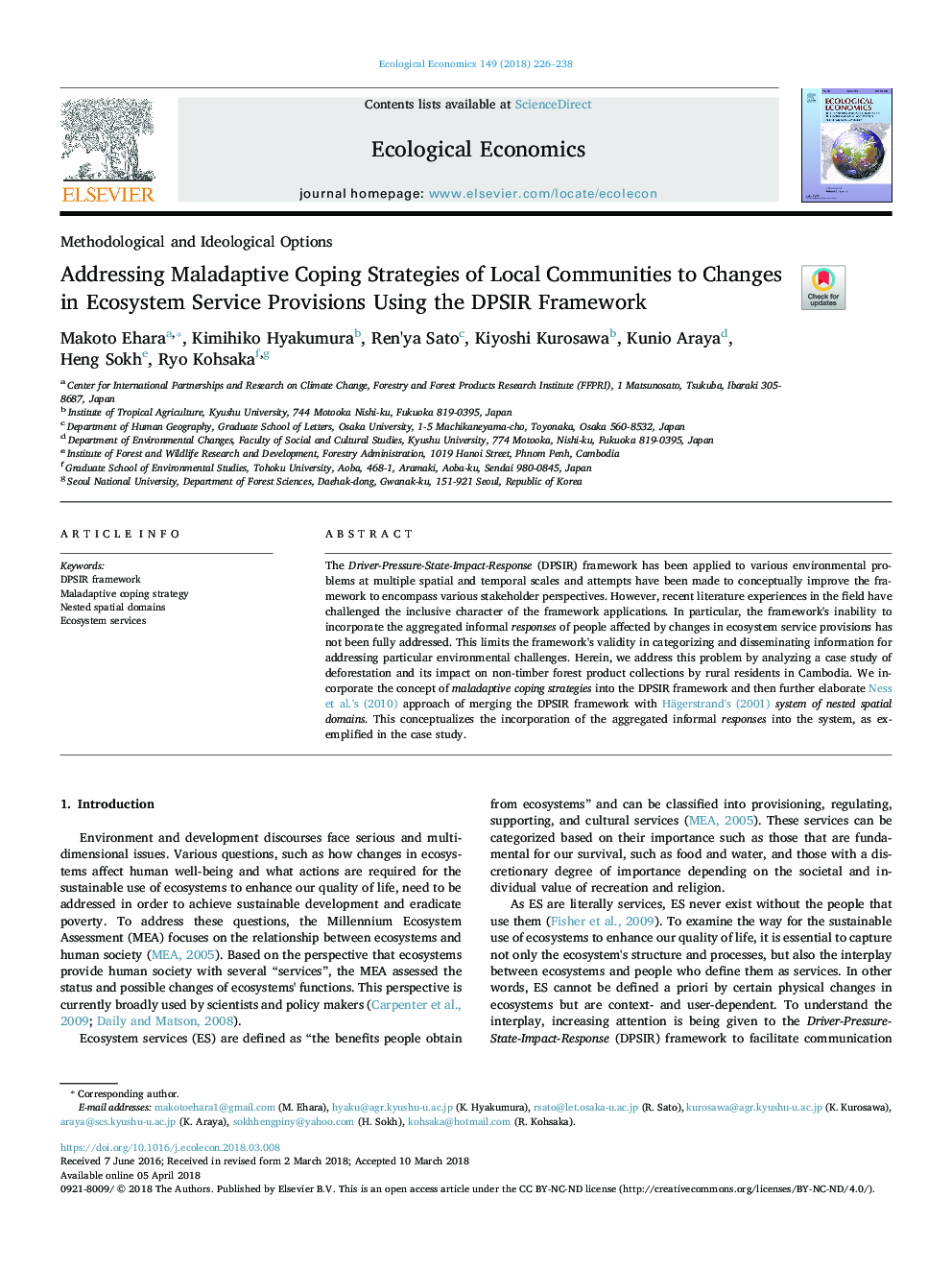| Article ID | Journal | Published Year | Pages | File Type |
|---|---|---|---|---|
| 7344206 | Ecological Economics | 2018 | 13 Pages |
Abstract
The Driver-Pressure-State-Impact-Response (DPSIR) framework has been applied to various environmental problems at multiple spatial and temporal scales and attempts have been made to conceptually improve the framework to encompass various stakeholder perspectives. However, recent literature experiences in the field have challenged the inclusive character of the framework applications. In particular, the framework's inability to incorporate the aggregated informal responses of people affected by changes in ecosystem service provisions has not been fully addressed. This limits the framework's validity in categorizing and disseminating information for addressing particular environmental challenges. Herein, we address this problem by analyzing a case study of deforestation and its impact on non-timber forest product collections by rural residents in Cambodia. We incorporate the concept of maladaptive coping strategies into the DPSIR framework and then further elaborate Ness et al.'s (2010) approach of merging the DPSIR framework with Hägerstrand's (2001)system of nested spatial domains. This conceptualizes the incorporation of the aggregated informal responses into the system, as exemplified in the case study.
Keywords
Related Topics
Life Sciences
Agricultural and Biological Sciences
Ecology, Evolution, Behavior and Systematics
Authors
Makoto Ehara, Kimihiko Hyakumura, Ren'ya Sato, Kiyoshi Kurosawa, Kunio Araya, Heng Sokh, Ryo Kohsaka,
